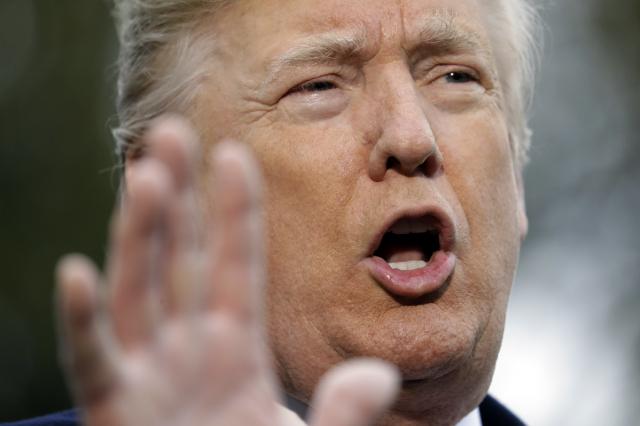Oil prices fell on Monday, extending a slump from Friday that ended weeks of rallying after President Donald Trump demanded that producer club, OPEC raise output to soften the impact of U.S. sanctions against Iran.
Brent crude futures were at 71.59 dollars per barrel at 0840 GMT, down 56 cents or 0.78 per cents from their last close.
U.S. West Texas Intermediate (WTI) crude futures were at 62.93 dollars per barrel, down 37 cents or 0.58 per cent from their previous settlement.
Both benchmarks fell around 3 percent in the previous session.
Trump said on Friday he told OPEC to lower oil prices.
“Gasoline prices are coming down. I called up OPEC, I said you’ve got to bring them down. You’ve got to bring them down,” Trump told reporters.
“I spoke to Saudi Arabia and others about increasing oil flow. All are in agreement,” the president later tweeted.
Trump’s remarks triggered a selloff, putting at least a temporary ceiling on a 40 per cent price rally in oil prices since the start of the year.
The rally had gained momentum in April after Trump tightened sanctions against Iran by ending all exemptions that major buyers, especially in Asia, previously had.
Traders said the market was shifting its focus to the voluntary supply cuts led by OPEC, de facto headed by the world’s top exporter Saudi Arabia.
“We are of the view that Saudi Arabia will increase output as soon as May, something they were likely to do anyway in the lead up to summer,” ING bank said.
“The kingdom could increase output by 500 million barrels per day (bpd) and still be in compliance with the OPEC+ deal for the month of May.”
The cuts have been supported by some non-OPEC producers, notably Russia, but analysts said this cooperation may not last beyond a meeting between OPEC and its other allies, a group known as OPEC+, scheduled for June.
Russia has said it would be able to meet China’s oil demand needs as Beijing tries to replace the imports it usually gets from Iran.
“Russia appears to have every reason to resume ramping up production levels and the base case should start to become (that) we will not see OPEC+ agree upon extending production cuts, with tweaks to cover the shortfall from Iran,” said Edward Moya, senior analyst at futures brokerage OANDA.







